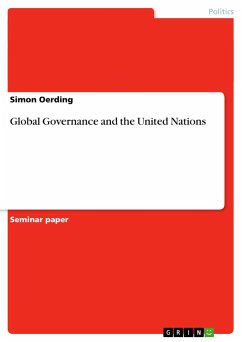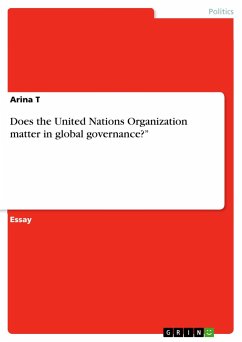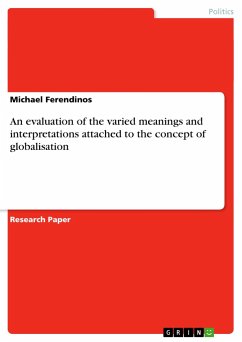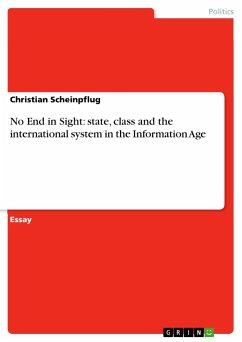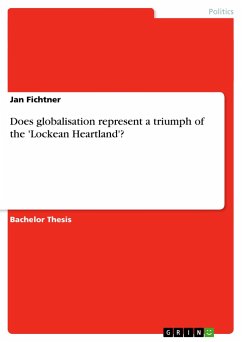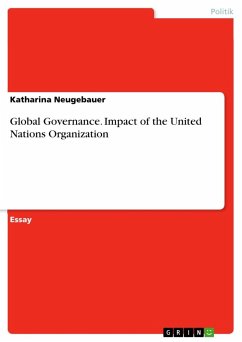Seminar paper from the year 2008 in the subject Politics - International Politics - Topic: Globalization, Political Economics, grade: 1,3, University of Münster (Institut für Politikwissenschaft), course: Hauptseminar: Globalisation and Global Governance, language: English, abstract: [...] Clearly, the paper revolves around the normative concept of global governance. Whilein scientific literature, the normative concept of global governance has becomeunfashionable by the time and a rather critical analysis of the implication ofinternational regulation has taken precedence, it will be outlined that there is goodreason to investigate the connection between the UN and the normative concept. By nomeans does this foreclose the importance of critical scrutiny of the establishinggovernance architecture. The criticism of global governance as the perpetuation ofneoliberal hegemony and Western domination is acknowledged but will not be dealtwith from this point on. Surprisingly little effort been made so far to systematically link the concept of globalgovernance, be it normative or analytical, to the United Nations system although on agut level, scholars seem to agree that both are somehow linked. At the start of theanalysis, this paper sets out to present a first useful framework put forth by Brühl andRosert (Brühl/Rosert 2007) and adds a missing category to the analysis, the linkbetween the UN and the normative concept of global governance. In the normativetradition, the developed framework inter alia proposes to consider the UN as a potentialactivator for global governance as a normative concept. While the connection of globalgovernance and the UN as its activator offers room for gripping research, the ambitionof this paper is much downgraded. It only seeks to offer a starting point by investigatingwhether the UN can actually advance global governance and tries to enable a firstcautious approach to the more general hypothesis above. To facilitate this analysis, in a first step a major problem of global governance isselected. The fundamental lack of integration of non-state actors into governancestructures serves as a case in point for that matter. The legitimacy of global governancesuffers from this lack which in turn impedes reaping the desired benefits of the concept.In a second step, the UN's capacity to solve the depicted problem is analysed. [...]
Hinweis: Dieser Artikel kann nur an eine deutsche Lieferadresse ausgeliefert werden.
Hinweis: Dieser Artikel kann nur an eine deutsche Lieferadresse ausgeliefert werden.

